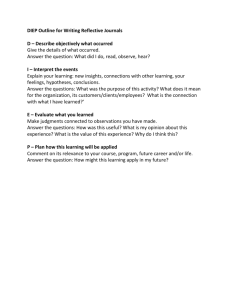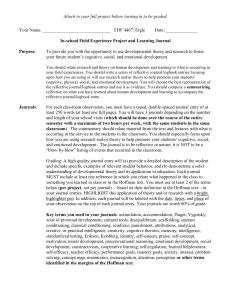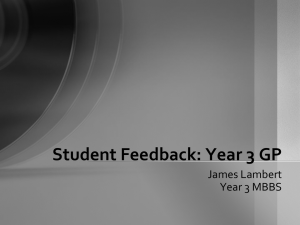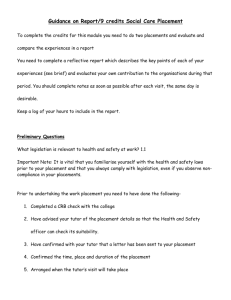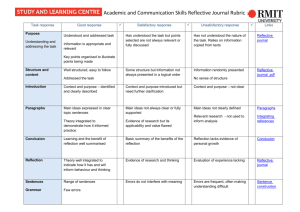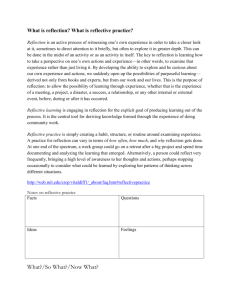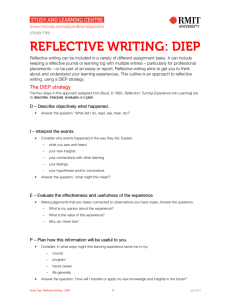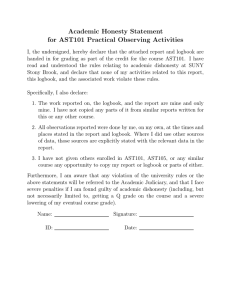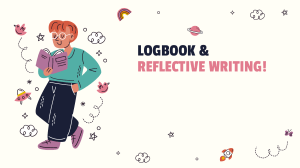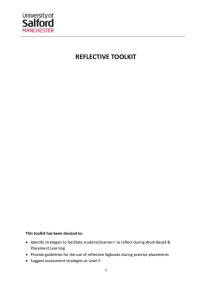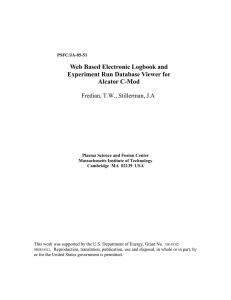student reflective log book writing guide
advertisement
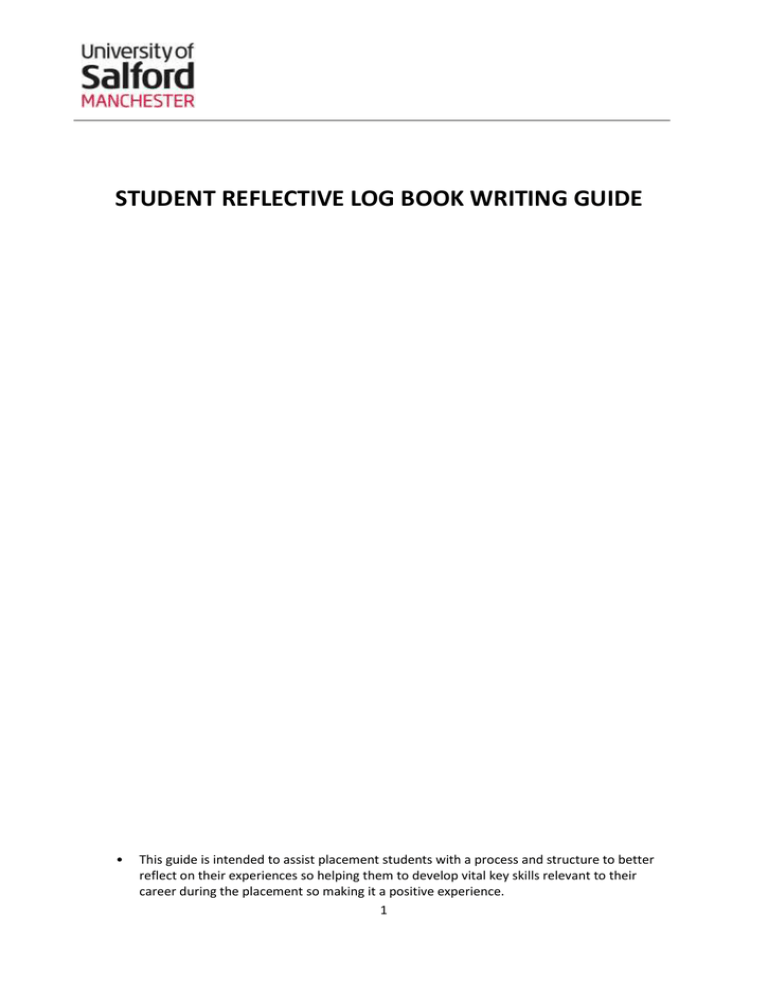
STUDENT REFLECTIVE LOG BOOK WRITING GUIDE • This guide is intended to assist placement students with a process and structure to better reflect on their experiences so helping them to develop vital key skills relevant to their career during the placement so making it a positive experience. 1 What is reflective writing? Reflective writing is evidence of looking back at an event, idea, experience, process, etc. What is Reflection? “Learning from experience” (Spalding, 1998) “Thoughtful deliberation” (Tickle, 1994) WHAT IS REFLECTION “Systematic, critical and creative thinking about action with the intention of understanding its roots and processes” (Fish and Twinn, 1997) Reflection has three stages: • The learning opportunity • The information gathering and critical analysis • The changed perspective (Spalding, 1998) To move through these three critical stages of reflection the reflective logbook will use the DIEP four step approach (adapted from Boud, D 1985, Reflection: Turning Experience into Learning) are to describe, interpret, evaluate and plan. D – Describe objectively what happened Give the details of what happened. Answer the question: ‘What did I do, read, see, and hear?’ I – Interpret the events Explain your learning: new insights, connections with other learning, your feelings, hypotheses, conclusions. Answer the questions: ‘What was the reason I did this activity?’ ‘What might it mean?’ E – Evaluate what you learned Make judgments connected to observations you have made. Answer the question: ‘How was this useful?’ P – Plan how this learning will be applied Comment on its relevance to your course, program, future profession, life... Answer the question: ‘How might this learning apply in my future?’ In your entries, attempt to: Analyse your own performance as a learner and employee Evaluate your gains in understanding and completing tasks Verbalise how you feel about your learning and development in the placement Make connections with other experiences, ideas 2 Demonstrate transfer of learning (You may be using skills you developed in a part time job to help you in your placement i.e. excel use or how to deal with difficult people). Integrate the concepts taught in courses (including the literature where relevant) Consider the principal activities you were involved in during the week (this can include anything from office duties, training you may have attended or work you may have done on a project). Reflect on your experience, using this list of prompt questions to help you complete the DIEP reflection: Which single activity that you have undertaken this week do you consider to be your best achievement? How could you further improve upon that achievement? Which single activity that you have undertaken this week do you consider to be your least successful achievement? Why do you think you were unable to do better than you did? How would you go about doing that activity differently if you were called to do it again? How long will it take? As a rough guide, each logbook entry should take approximately 20-30 minutes. You may take more or less time depending upon your time constraints and the amount of detailed information you wish to include. What should you write? Remember we are trying to access experience and thoughts about what you have done how it has affected your development personally or professionally or both. Don’t worry if you discover your answers overlap or if you feel one question has already been answered in response to another. Try to write something, no matter how brief your response may be to each question. If you find that you have nothing to comment on in certain sections note so, may be this is telling you something important about your role and its ability to meet you intended learning outcomes. 3 Reflective Logbook Process Use the process to work through the DIEP strategy of completing your log book entries, remember you do not need to complete each box in the process as they may be irrelevant Date: 7. What did I learn? 8. What are my next steps? 2a. Whose fault (if relevant)? Now move on 6. How would I improve on this? 1. What happened/what did I do? 2. How did I feel/do I now feel? 5. What went not so well? 4. What went well? 3. Unemotional view, incl. causes 4 Anything else to remember? The process of learning is as important as the content of your Reflective Logbook. Avoid cataloguing what you've done on placement – in a good logbook you reflect on what works or doesn't work successes and failures and how you can address the failures and use the successes in the future. Use plenty of examples and details. Feelings are an important part of the logbook. Interest, joy, frustration and anger can be included. Reflect on why and when and what you can do about certain situations. 5
